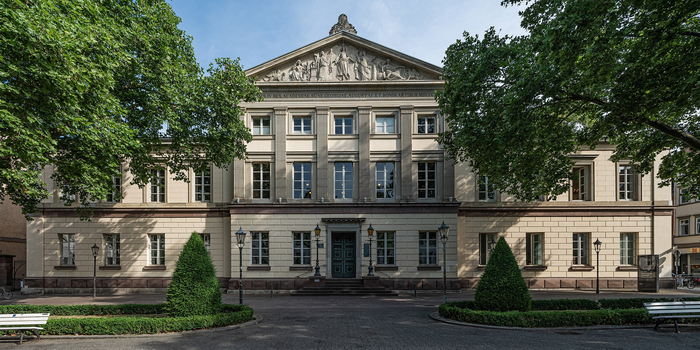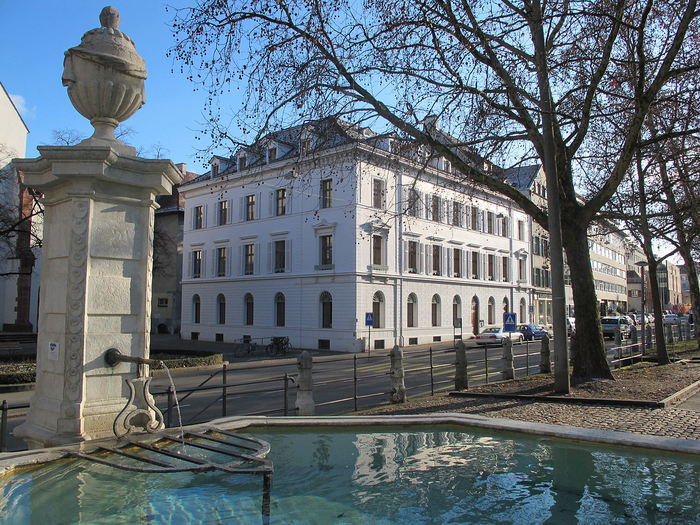Europe, with its rich cultural heritage and history, has always been a magnet for travelers. But in recent years, it’s not just the scenic beauty and gastronomy attracting Americans across the pond. Many are now looking at universities in Europe as an alternative to the rising tuition fees at home. The big question is, can Americans apply to these institutions?
Absolutely! Numerous English speaking universities in Europe openly welcome international students, including Americans. The benefits are clear: top-notch education, multicultural exposure, and often at a fraction of the cost of U.S. universities. In addition to the affordability factor, studying in Europe offers a chance to learn in a diverse environment, pick up a new language, and experience life from a different perspective.
Applications for Americans aren’t vastly different from those for Europeans. With the right documentation, transcripts, and sometimes a language proficiency test (if the course isn’t in English), you’re set to go. The Bologna Process, a higher education system adopted by many European countries, ensures that qualifications like bachelor’s or master’s degrees are standardized, making it easier for international students, including Americans, to enroll.
Without further ado, let’s check out 10 most affordable english speaking Universities in Europe.
10 – University of Pisa – Italy

Nestled in the heart of Tuscany, the University of Pisa is one of Italy’s most renowned educational institutions. Established in 1343, it’s steeped in history, offering students a unique blend of classical education in a modern setting. While it’s often associated with its iconic Leaning Tower, the university has much more to offer.
Students here can benefit from a wide array of undergraduate and postgraduate courses conducted in English, making it an attractive choice for those who want to experience the rich Italian culture without the language barrier. The tuition fees are surprisingly affordable, especially given the university’s long-standing reputation. Moreover, Pisa is a relatively inexpensive city to live in, further reducing the cost of study.
The university is known for its emphasis on research and innovative approaches to education. Its dynamic campus environment fosters an international community, making it easier for foreign students to blend in and feel at home.
09 – Polytechnic Institute of Milan – Italy

Italy isn’t just famous for its art, fashion, and cuisine; it’s also home to some of the most affordable English speaking universities in Europe. One shining example is the Polytechnic Institute of Milan. Established in 1863, it stands as Italy’s largest technical university and is among Europe’s most prestigious universities in the field of engineering, architecture, and design.
What’s notable is the breadth and depth of English-taught programs available, catering to both undergraduates and postgraduates. For students with an inclination towards technology and design, this institution is a haven, given its cutting-edge facilities and industry-focused curriculum.
Milan, being the fashion and finance capital of Italy, offers numerous opportunities for internships and work placements. This gives students the practical experience they need, setting them on a path to success in their respective fields. Moreover, despite being in one of Europe’s most cosmopolitan cities, the cost of education here remains impressively accessible.
08 – Léonard de Vinci University College – Belgium

Belgium, often overshadowed by its more famous neighbors, holds some hidden gems in higher education. One such institution is the Léonard de Vinci University College. Located in Brussels, the heart of Europe, this university college offers a range of bachelor’s and master’s programs, all conducted in English.
Apart from its affordable tuition fees, one of the university college’s major draws is its strategic location. Brussels is not only Europe’s political hub but also a melting pot of cultures, giving students exposure to a diverse international community. The curriculum at Léonard de Vinci emphasizes practical knowledge, with many courses incorporating internships and real-world projects.
Another advantage is the smaller class sizes, which ensure a more personalized learning experience. The faculty, with its mix of academic and industry experts, provides students with a holistic view of their field of study, equipping them with the skills needed to excel in the global marketplace.
07 – University of Göttingen – Germany

Drenched in history and academic prestige, the University of Göttingen stands tall among the affordable English speaking universities in Europe. Founded in 1737, it’s one of Germany’s older universities, yet it seamlessly marries tradition with modernity. An impressive fact is that over 40 Nobel Prize winners have been associated with Göttingen, testifying to its academic prowess.
With a substantial number of its programs conducted in English, Göttingen becomes a top pick for international students. The spectrum of courses available is vast, from the humanities to the natural sciences. Furthermore, Germany’s education policy keeps tuition fees at a minimum, making the proposition even more enticing for prospective students.
Göttingen city, affectionately known as the ‘City of Science’, provides a vibrant student life. The multicultural environment, paired with the university’s rich history, ensures a fulfilling and well-rounded experience.
06 – University of Crete – Greece

The allure of Greece goes beyond its sun-kissed beaches and ancient ruins. The University of Crete, established in 1973, stands as a testament to Greece’s commitment to quality education that’s also affordable. Located in the scenic towns of Rethymno and Heraklion, students here don’t just gain academic knowledge but also immerse themselves in the rich Hellenic culture.
With an increasing number of courses offered in English, particularly at postgraduate levels, the University of Crete has become an attractive study abroad destination. It prides itself on its research initiatives, and its faculties are often involved in groundbreaking work, especially in the fields of the sciences and humanities.
Moreover, Greece, with its relatively low living costs, further drives down the overall expense of studying here. Imagine finishing your lectures and heading straight to the Mediterranean coast – a dream many students at the University of Crete live daily.
05 – Free University of Berlin – Germany

Berlin, with its unique blend of history, culture, and avant-garde spirit, houses one of the most distinguished institutions in Europe – the Free University of Berlin. Founded in 1948, it emerged as a beacon of freedom during the Cold War era and has since maintained its commitment to free-thinking and academic excellence.
Being one of the premier English speaking universities in Germany, it offers a variety of programs tailored to international students. Ranging from arts to the hard sciences, the courses are comprehensive and foster critical thinking.
One of the standout features of studying here is Berlin itself. As a global hub for art, innovation, and politics, it offers innumerable opportunities for internships, collaborations, and networking. Moreover, Germany’s student-friendly policies ensure that higher education remains accessible to all, making the Free University of Berlin an outstanding choice for those seeking quality education in Europe’s vibrant heart.
04 – Fontys University of Applied Sciences – Netherlands

The Netherlands, with its picturesque canals and bike-friendly cities, is home to Fontys University of Applied Sciences. This university boasts a pragmatic approach to learning, emphasizing hands-on experiences, making it one of the top affordable English speaking universities in Europe. Based in various cities including Eindhoven, Tilburg, and Venlo, Fontys offers a wide range of bachelor’s and master’s programs in English, catering especially to the global student community.
One distinctive feature is its strong ties with the industry. Fontys engages students in real-world projects, ensuring they are well-prepped for their future careers. Besides, the Dutch education system encourages innovative thinking, making students more employable globally.
For those considering the Netherlands for higher education, Fontys becomes an inevitable choice, given its blend of quality education and experiential learning in the heart of Europe.
03 – University of Basel – Switzerland

Tucked away in Switzerland, a nation renowned for its majestic Alps and intricate watches, is the University of Basel. This institution, founded in 1460, holds the title of Switzerland’s oldest university. While many might associate Switzerland with hefty price tags, the University of Basel defies that notion, standing as a leading affordable university.
Its broad spectrum of programs offered in English attracts a significant international crowd. With a strong emphasis on research, students here have the opportunity to work alongside acclaimed scholars, especially in fields like life sciences and humanities.
Living in Basel, a cultural hotspot, students are exposed to a melange of Swiss, French, and German influences, enriching their study abroad experience and widening their global perspective.
02 – University of Würzburg – Germany

Germany continues to shine in the realm of higher education with the University of Würzburg. Founded in 1402, this university boasts a legacy of academic excellence. Nestled in Bavaria, its picturesque campus provides a conducive environment for focused studies.
What makes Würzburg stand out among other English speaking universities is its robust research infrastructure. It has contributed significantly to advancements in various fields, particularly in the sciences. International students will find a welcoming community here, with numerous programs tailored to their needs.
Additionally, Würzburg city, with its rich history and vibrant student life, further elevates the entire academic experience. It’s a blend of tradition, innovation, and global outreach.
01 – Heidelberg University – Germany

Topping our list is Heidelberg University, a gem in the heart of Germany. Established in 1386, it’s one of Europe’s oldest and most prestigious universities. Throughout its illustrious history, Heidelberg has been a cradle of knowledge, producing numerous Nobel laureates and leading thinkers.
Its vast array of programs in English caters to a diverse international community. The institution’s research-centric approach, coupled with its state-of-the-art facilities, makes it a prime destination for those seeking quality education.
Heidelberg city, with its iconic castle and serene Neckar River, offers an ambiance like no other. Students here are treated to a blend of medieval charm and modern amenities. For anyone dreaming of a quintessential European education experience, Heidelberg University undoubtedly stands as the pinnacle.
Europe, with its blend of history, culture, and top-tier universities, truly offers a unique academic journey. The blend of affordability and excellence in these institutions makes them the go-to destinations for students worldwide.
Can International Students Get Student Loans?
Navigating the world of higher education can be daunting, especially when it comes to financing. International students often wonder about the availability of student loans when considering studying in Europe.
While European universities are typically more affordable, some students might still need financial assistance. The good news is, yes, international students can access student loans in many European countries. The specifics, however, depend on the country and the university. Some nations offer attractive loan schemes for foreign students, often at lower interest rates than what might be available in their home country.
Beyond national schemes, several study abroad programs and private institutions offer loans or scholarships specifically designed for international students. The key is research. By exploring your chosen university’s financial aid page and consulting with the international student office, a world of possibilities can open up, making that dream of studying in Europe even more attainable.
Unraveling the Career Boost of Studying Abroad
Studying abroad isn’t just an opportunity to explore a new culture or make international friends. It’s a strategic move that can catapult your career to new heights. With the rise of globalization, employers now, more than ever, value candidates with international exposure and a broader worldview.
One significant advantage of study abroad programs is the development of soft skills. Living in a new country hones your adaptability, problem-solving skills, and intercultural communication abilities. These are invaluable in the modern workplace, where collaboration across different cultures and backgrounds is common.
Moreover, studying abroad allows you to expand your professional network internationally. Making connections with peers, professors, and industry professionals from around the world can open doors to job opportunities and collaborations in the future.
Additionally, many top universities in Europe provide internships or work placements as part of their curriculum, giving students practical experience in their field of study. This not only gives you a competitive edge but also offers insights into the global market trends and operations.
Finally, an international educational background can make your resume stand out. It tells potential employers that you’re not afraid to step out of your comfort zone, that you can navigate challenges, and that you have a broadened perspective.
To sum it up, while the adventure and experiences gained from studying abroad are invaluable, the impact it can have on your career is profound. Whether it’s the skills you acquire, the people you meet, or the experiences you garner, studying abroad is a decision that pays dividends long into your career.


